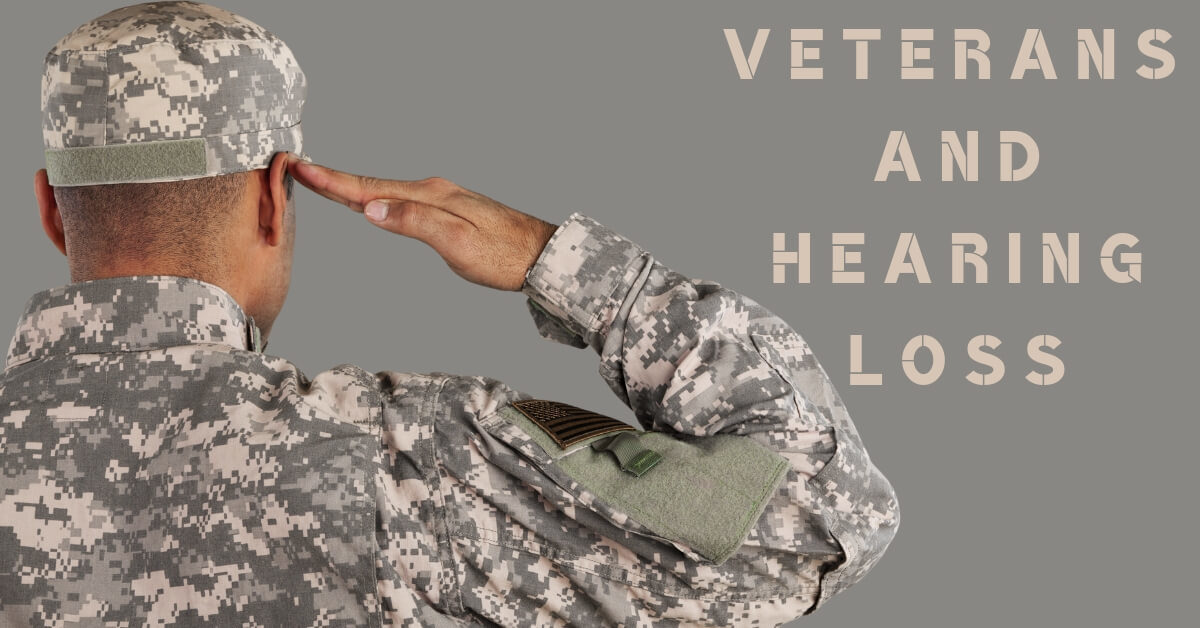
Veterans and Hearing Loss
Do you have friends or family members who have served our country? Rates of hearing loss among veterans are far higher than among the general public. In the line of duty, military personnel often face extremely loud noises, and when they’re not wearing proper hearing protection, these noises can cause permanent and severe hearing loss that will haunt them for the rest of their lives.
Hearing Loss and Veterans
Veterans who served in active war zones have the highest rates of hearing loss, and these are far higher than the rates of hearing loss among the general public. Veterans who served in Iraq and Afghanistan report alarmingly high rates of hearing loss and tinnitus. In 2017, there were 1.79 million compensation recipients for tinnitus, and 1.16 million who received compensation for hearing loss. Veterans suffer from noise induced hearing loss, or hearing loss caused by exposure to excessively loud noises.
Noise induced hearing loss can be gradual, and the result of repeated exposure to loud noises. It can also be immediate, for example when standing near an explosion or some other extremely loud sound. It’s heartbreaking that veterans suffer from hearing loss, because this kind of hearing loss is entirely preventable.
Protecting Hearing in the Field
Sadly, hearing loss is the most prevalent service-related injury among US veterans. Military personnel are often put in extremely noisy environments like in submarines, or in tanks and transport carriers. They work with heavy equipment, firearms, and explosives, which all produce dangerously loud sounds that will damage hearing. With all this noise, it’s not surprising that the military purchases hearing protection in bulk, and encourages their personnel to wear hearing protection.
If soldiers always wear hearing protection, why do so many face hearing loss? Sadly, not all military personnel consistently wear adequate hearing protection.
Ineffective Hearing Protection
When purchasing hearing protection in bulk, the quality of the safety equipment is not always assured. Some of the ear plugs or ear muffs might be damaged, or may be used in situations where they don’t provide enough hearing protection for the level of noise.
One tragic example of ineffective hearing protection came to light in 2016, when a lawsuit was filed against 3M, the manufacturer of the Combat Arms Earplugs Version 2. The lawsuit claimed that the company sold defective hearing aids, knowing that they wouldn’t actually protect hearing to the range they claimed. “It is an absolute disgrace that 3M would purposefully provide defective equipment to U.S. service members, knowing that those service members would rely on that defective equipment in combat,” says Andrew Cobos, an attorney named in the lawsuit. “Their fraud resulted in lifelong injuries to America’s warriors.” Soldiers wearing these earplugs felt confident that they were doing the right thing for their ears, but they still experienced high rates of hearing loss.
Treating Hearing Loss
For veterans returning home with hearing loss, treating hearing loss as soon as possible is key to easing the transition back into home and work life. Veterans with hearing loss struggle to hear in places with a lot of background noise, and can’t follow conversations easily. This places a strain on close relationships, and make it difficult for veterans and their loved ones. Many also experience tinnitus, that annoying ringing or buzzing sound in the ear that’s present in the absence of any other sounds. Tinnitus can lead to irritability, moodiness, insomnia, and fatigue.
Do you have a veteran in the family? Or maybe you’ve just gotten home from duty, and have noticed changes in your hearing. Call us today at Absolute Audio and schedule a hearing test. We’ll measure your exact level of hearing loss, and find out what sounds you can and can’t hear. Then, we’ll help you find the perfect device that will match your lifestyle and hearing needs, and allow you to hear clearly. With hearing aids, you’ll be able to have those intimate conversations with your loved ones without having to ask them to repeat themselves. You’ll be able to enjoy drinks with friends, and manage your tinnitus, both during the day and the night.
